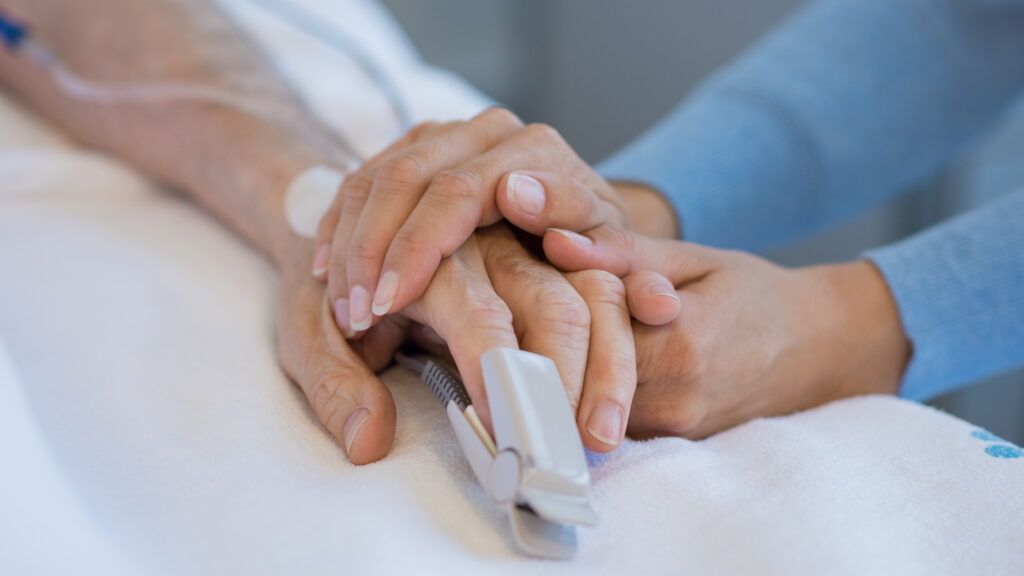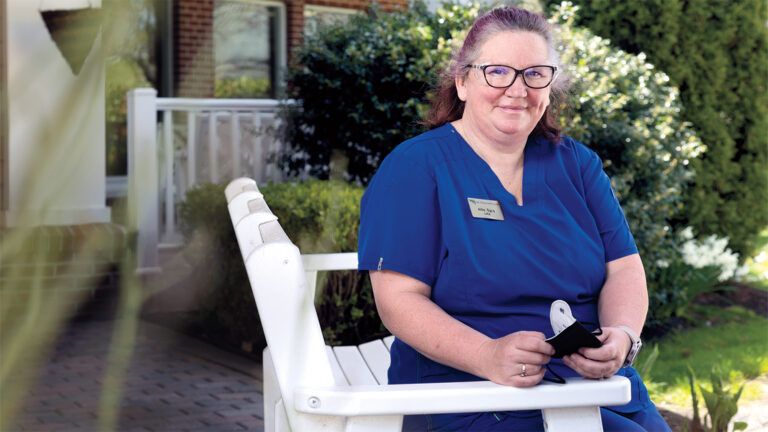Forty years ago, I was hospitalized after a car accident with a broken femur, ankle and arm. Mom took off work and spent every night sleeping on an uncomfortable cot next to my hospital bed.
One night, she noticed a change in my breathing and alerted the staff. Thanks to her, my lung embolism was caught early. I still had to spend three nights in intensive care, but without Mom’s early detection, the doctor said I would not have survived.
When my mother was recently hospitalized with a broken hip, I knew how important it was to be there for her; even more because she suffers from Alzheimer’s and communicates through facial grimaces, smiles and tears.
It was an eye-opening experience to be on the other side in the hospital, as the caregiver rather than the patient. Here are four things I learned while looking after my mother:
1. Be there to interpret their actual wishes, if necessary.
When Mom was admitted to the hospital, I provided them with copies of her do-not-resuscitate order (DNR) and advance directive. The following morning, as they were wheeling her into the surgery room, the anesthesiologist advised me that at her age patients often stop breathing during surgery, but it was a very easy procedure to start the breathing again. Did I want him to provide that resuscitation procedure, if she stopped breathing?
I was with Mom when she signed her DNR and Advance Directive. We had discussed this while she was still of sound mind, so I knew her intent. She would certainly not want to forego a simple procedure that would allow her to continue breathing on her own. But if I had not been there to approve that procedure, and if Mom had quit breathing during surgery, then the outcome of the surgery could have been tragic.
2. Alert nursing staff to behavior changes.
You know your loved one better than the nursing staff. Don’t hesitate to contact them if you notice something wrong.
One day, I noticed an extreme expression of pain on Mom’s face. Tears rolled down her cheeks and she tapped at her leg with her arm. I knew something the nurses didn’t. Mom has occasionally suffered from excruciating thigh cramps and I felt sure that was what she was experiencing. I was able to convince them to treat her cramps with muscle relaxers to ease her pain.
3. Make sure your loved one is fed.
Occasionally, I would need to leave the hospital to go home for a bit or run an errand. When I returned, I would find a tray of food placed just out of Mom’s reach. I reminded the nurses that my mother couldn’t feed herself or lift a cup of water to her mouth, but sometimes they still forgot. Providing feeding instructions and checking to make sure they are followed through can help prevent a similar situation.
4. Trust your gut and be assertive.
Near the end of Mom’s stay, I noticed she was lethargic and breathing slowly. I gently shook her and called out to try to waken her, but I wasn’t getting a response. I flagged down a doctor who was making his rounds. I explained to him that she hadn’t been like that before and I felt something was not right. He checked the chart, called in the nurse on duty and discovered Mom had accidentally been given three times the dose of a medication. She had to be monitored closely, until the medication was no longer in her system.
I appreciate nurses and doctors. They work long hours and difficult shifts. But they cannot be everywhere at once and your loved one is not the only patient in their care. I know firsthand how important it is that a close family member be at the hospital to watch over their loved one, especially when the patient is unable to communicate.
Of all the things you can do for your loved one, the most important is simply to be there.





